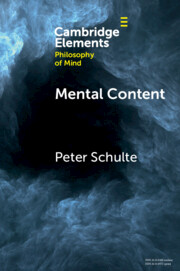Refine search
Actions for selected content:
4 results
Epilogue
-
- Book:
- Cognition and the Arts
- Published online:
- 14 September 2025
- Print publication:
- 23 October 2025, pp 144-144
-
- Chapter
- Export citation

Cognition and the Arts
- From Naturalized Aesthetics to the Cognitive Humanities
-
- Published online:
- 14 September 2025
- Print publication:
- 23 October 2025

Mental Content
-
- Published online:
- 12 August 2023
- Print publication:
- 31 August 2023
-
- Element
- Export citation
7 - From Prediction to Imagination
- from Part I - Theoretical Perspectives on the Imagination
-
-
- Book:
- The Cambridge Handbook of the Imagination
- Published online:
- 26 May 2020
- Print publication:
- 18 June 2020, pp 94-110
-
- Chapter
- Export citation
